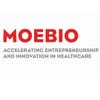Alfred Ramírez: “The healthcare sector is full of professional opportunities for engineers”
Alfred Ramírez is from a family of doctors, but he decided to chart his own course and studied Industrial Engineering. He was a member of the first class of the Design Health Barcelona (d·HEALTH Barcelona) fellowship, which trains engineers, designers, scientists and business graduates to be future entrepreneurs and innovators in the healthcare sector. He is currently working in quality control in the software development department at Roche Diagnostics, one of the divisions of Roche, which is the largest biotechnology company in the world, with 95,000 employees and sales of 56.8 billion Swiss francs (roughly €51 billion). In 2018, the company invested nearly €10 billion, roughly 20% of turnover, in research and development of innovative products to meet medical needs and make a difference in patients’ quality of life. What is an engineer doing at a healthcare company? Alfred sums it up in one sentence: “Thanks to my work, we help thousands of physicians around the world better diagnose their patients.”
Why did you decide to apply to d·HEALTH Barcelona?
I have a degree in Industrial Engineering, and when I was about to finish, I discovered the program and decided to join because I was interested in starting my professional career in healthcare. I also come from a healthcare-related background, so it was interesting for me.
I was very interested in having that experience of being inside the hospital: that was one of the main draws of the program for me.
During d·HEALTH Barcelona, the fellows do a two-month clinical immersion in a large hospital, experiencing the day-to-day activities of staff and patients. What was that experience like for an engineer?
As an engineer, being inside a hospital is an amazing experience. There are a lot of machines, processes and beeping, etc., that are really appealing for an engineer. But also, what I remember most is the relationship with people: caregivers, physicians, etc., but also the patients and their families, too.
95% of former d·HEALTH Barcelona fellows find work in the sector after the program: what was your experience in this regard?
After I finished the d·HEALTH program, I joined a consultancy group specializing in healthcare, especially in the pharma industry. A couple of years later, I joined Roche Diagnostics, where today I am a Quality Manager in the Software Development Department. Thanks to my work at Roche, we help thousands of physicians around the world better diagnose their patients.
Why is the healthcare sector attractive for an engineer?
As an engineer, and also as a person, I think healthcare is important because, unfortunately, maybe one day I will also be a patient. So, being part of this sector gives me the opportunity to contribute to this industry. But also as an engineer, I think the healthcare sector is full of opportunities: from the product development part, and also the processes in a hospital, etc.
If you have background in Engineering, Business, Design or Life Sciences and you want to follow Alfred’ steps, Biocat has open the selection for students of its 7th Design Health Barcelona (d·HEALTH Barcelona) edition, a postgraduate program to develop innovators and entrepreneurs in the healthcare sector, with starting date in January 2020. 95% of participants from previous years have found a job in the healthcare sector and 30% of them started their own business project. Following the Stanford biodesign methodology, participants experience a full cycle of innovation. The fellows divide into multidisciplinary teams and do a two-month clinical immersion in top hospitals in Barcelona to detect real unmet clinical needs on site that can be the basis for creating new products or services. More info: http://dhealthbcn.moebio.org
